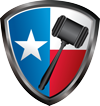
Dino Marcaccio
President
Former Texas Comptroller State Tax Auditor, 15 Years
What is a Successor Liability?
Since 2010 the Texas Comptroller’s Office has nearly tripled the annual number of successor liability assessments based on the three tax code sections listed below. Most of these assessments involve either a Sales Tax audit or a Mixed Beverage Gross Receipts Tax audit, which are transferred to a successor entity or individual using one or more of the following three tax code sections: Tax Code 111.020: Tax Collection on Termination of Business Purchaser Tax Code 111.022: Jeopardy Determination Tax Code 111.024: Liability in Fraudulent Transfers In some cases these assessments are likely to be partially or completely upheld because of the facts and the applicable tax law. In those cases I would suggest you speak with Texas Tax Group’s Settlement Coordinator to seek the best available settlement options. However, in many other cases, these assessments can be successfully argued. Since over 90% of these successor assessments are related to Texas Comptroller Sales Tax audits or Mixed Beverage Gross Receipts Tax audits, I will comment only on those scenarios. Below I will give a short definition, the reasons for their application and a brief explanation of what I believe can be done to defend against them. Note: I have nicknamed these successor tax codes because the legal names are a little confusing and/or misleading.The ‘Purchaser’ Successor Liability (Tax code 111.020)
A very common mistake is for a purchaser to buy the assets of a business and think that he/she is not liable for any past State tax audit liabilities of that business. NOT TRUE. Even if the asset purchase contract states that the buyer assumes no liabilities, the Texas Comptroller simply dismisses this assertion. However, there is one limit to this general rule. The transferred liability can be no more than the purchase price of the business. The one exception to this rule is if the Comptroller believes the purchase price was not equal to fair market value. In those cases the Comptroller can simply rely on 111.020 and/or 111.024 to transfer the entire liability to the buyer (Comptroller Publication 98-117). The determination of what constitutes a purchase of a business is very fact specific and I would suggest referring to Comptroller’s Rule 3.7 (d) to review the qualifying factors. Keep in mind that it is possible for the Comptroller to attempt to assess under this code section even if few assets were transferred. In the end, each case should be judged on its own merits since no two fact situations can ever be identical.The ‘Jeopardy’ Successor Liability (Tax Code 111.022)
I call this the ‘one size fits all’ successor liability tax code section. It can be used by itself to create the liability or to support either 111.020 (purchaser liability) or 111.024 (sham transfer). The language is very short and to the point and allows the Texas Comptroller to transfer any audit liability (fraud or non-fraud assessment) to anyone or any business with little or even no basis. This is a troublesome tax law in that there is no need to prove that a purchase of the business took place (111.020) or that a sham transfer of assets occurred (111.024, see further below for description). I have seen this tax law section misapplied numerous times. Recently it was used to assign a $250k fraudulent audit liability (Mixed Beverage Gross Receipts Tax audit) against an individual completely unrelated to the business (i.e., non-officer son of the officer owner). The son had a full time job at a bank during the entire audit period and had very little connection to the operation of the bar and yet he received this notice along with his father who also had a separate full time job. The son’s employer (the bank) is currently deciding whether to fire the son due to this very large fraudulent tax assessment liability that is now on his credit report. In addition, the son will face a possible Texas District Court lawsuit from the Texas Attorney General’s Office if the assessment becomes final. If Texas Tax Group can dismiss this assessment, then the son will hopefully get to keep his job. Adopted in 2001 Tax Code Section 111.022 (a) states:If the comptroller believes that the collection of a tax required to be paid to the state or the amount due for a tax period is jeopardized by delay, the comptroller shall issue a determination stating the amount and that the tax collection is in jeopardy.I would be very wary if this is the only tax code section that is used to transfer an audit liability (i.e., not used in conjunction with 111.020 and/or 111.024). As with all these types of successor liability assessments, each case is different and should be reviewed by a consultant with past experience and knowledge of this subject.

